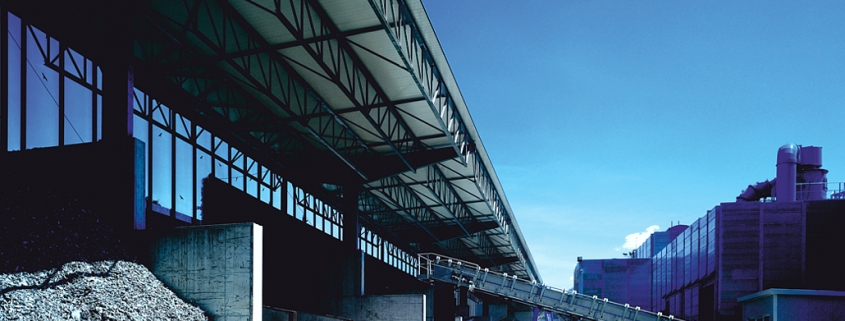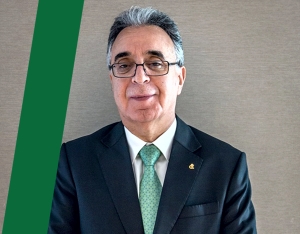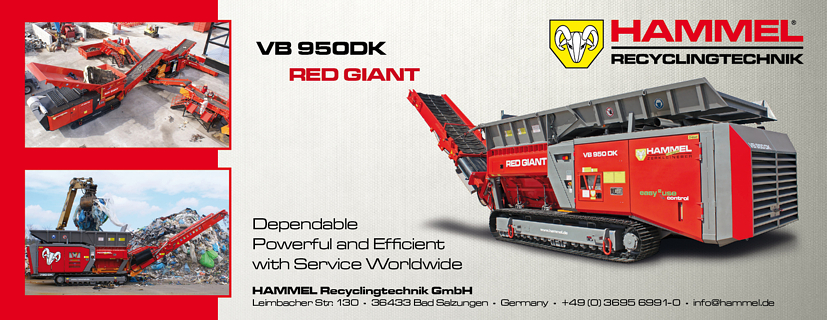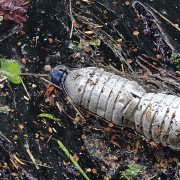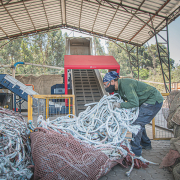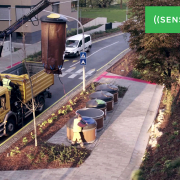Bureau of Middle East Recycling: Business Factor with far-reaching Connections
The Bureau of Middle East Recycling (BMR), founded as the association of the recycling industry in this part of the world, aims at expanding the course of the sector in the region and strengthening the cooperation with worldwide traders and consumers.
 BMR is a non-profit, non-religious and non-political organization to represent its members and provide them with the proper forum for exchanging commercial, technical, economical, legal and environmental information relating to recycling trade in the Middle East. Furthermore, it is focused on unity among the enterprises of the recycling industry in the region, “which is one of the largest geographical sectors dealing with million tons of scrap which yields billions of US-Dollars,” the association points out on its homepage.
BMR is a non-profit, non-religious and non-political organization to represent its members and provide them with the proper forum for exchanging commercial, technical, economical, legal and environmental information relating to recycling trade in the Middle East. Furthermore, it is focused on unity among the enterprises of the recycling industry in the region, “which is one of the largest geographical sectors dealing with million tons of scrap which yields billions of US-Dollars,” the association points out on its homepage.
In view of the development in the countries of the Middle East regarding more recycling and recovery, GLOBAL RECYCLING has asked BMR’s new president Nasser Aboura about his assessment of the future perspectives of the sector. In October 2018, he took over the function as president of the Bureau of Middle East Recycling from Salam Sharif who led the association for more than ten years.
Mr. Aboura, which goals do you pursue as the new President of the Bureau of Middle East Recycling?
BMR was formed in 2008 post the global financial crisis as during that time period our industry was experiencing issues such as defaults and it started that our industry experienced unprecedented defaults from some parties. The need to have a governing body to help and protect our members’ interests was crucial, and hence the establishment of BMR.
Since then, BMR has grown to become the main Recycling Association in the region, working alongside other international associations such as ISRI, BIR, MRAI, CMRA and other regional associations to serve our industry and promote recycling. We will continue on this path we have started, and we will provide more services to our members to help them mitigate through this turbulent and unpredicted markets.
We will be focusing on our members’ interests, keeping them well informed on issues worldwide and having more interactive activities and workshops to keep our members aware and everyone involved.
The recycling industry with the main focus on the metal sector is a major economic factor in the Middle East. Therefore, how would you assess subsequent developments of the organization?
We have more than 160 members, and our aim is to keep growing our community and increase the number of conference participation and BMR memberships.
The United Arab Emirates are planning to drastically reduce the disposal of waste in the years to come. Moreover, they want to achieve the goal of “Zero Waste” until 2030. Could you let us know to which extent the members of the BMR are going to contribute with their expertise to the implementation of the “2030 Agenda for Sustainable Development”?
With a rising population and fast development, the UAE is amongst the biggest waste generation countries in the world. Wastes are recyclables and thus having considerable values. Recycling is an important factor, amongst others, in achieving the government target of zero waste. Promoting waste management and recycling waste will benefit all stakeholders which will achieve the sustainable environment which is one of the main pillars of the 2030 Agenda of Sustainable Development.
BMR members being deeply involved in recycling will play an important role in the implementation of the policy as wastes and scrap are valuable resources and recycling them is an important step in creating the circular economy resulting in sustainable development and eventually zero wastes.
According to your opinion, how is the realization of the vision for 2030 going to have an effect on the economy of the United Arab Emirates and the Middle East?
Utilizations of all resources and encouraging the circular economy will help sustainable development. Recycling waste will definitely add up to the UAE economy. Recycling rather than burying all that waste in landfills, will, of course, have added value as this important resource is being utilized, as well as saving the environment, reducing carbon footprint, and reducing energy consumption. This is the importance of recycling and BMR’s role is to support it.
Apart from other activities, the BMR organizes the “BMR International Conference” every year. In 2019 the conference will be taking place in Dubai from 10th to 11th of March. The meeting is considered to be the main event for metal recycling in the Middle East. Do you know if there are any plans to expand the event and include other recycling sectors as well?
We are in full gear in our preparations for our 8th International Conference, and the agenda is being finalized.
BMR is representing all sectors whether non-ferrous, ferrous, plastics or paper. Our board members represent a wide variety of recycling sectors representing metals, plastic, and paper. We already have coverage in our previous conferences in other sectors, and this year will be the same.
The BMR supports free trade and pursues the goal to strengthen the cooperation between distributor and customer. Can you name certain countries with which you have an extremely close commercial relationship? To which extent does the geographical location of the Arab peninsula strengthen those trade relations?
Located at the center between the East and West, the Middle East is strategically positioned to hold a strong and close relationship with a majority of our consuming markets from as close as Asia to as far as North America.
Key partner countries that we work closely with include India and Pakistan, as well as China, Japan and Korea. We also enjoy solid relations with the EU as they are an important strategic market for our region. This also translates into our BMR members who extend from all over the globe.
Mr. Aboura, thank you very much for this interview!
Photo: pixabay
GR 12019

